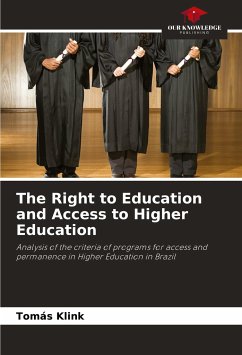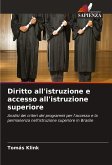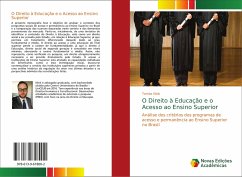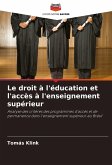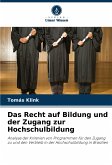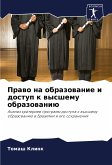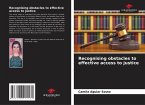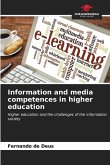The aim of this monograph was to analyze the context of social programs for access to and permanence in higher education in Brazil and to compare the nuances encountered in this scenario with the demands of the market. Initially, an attempt was made to identify the content of the Right to Education, seen as a social right to be provided by the State, in relation to Higher Education, since it permeates a different treatment from that given to primary and secondary education. The right to access higher education loses its fundamental character, since the right to education, a second generation social right, is conceived at minimum levels, covering primary and secondary education. As such, it does not represent, as the research has shown, a compulsory right to be provided directly by the state. Access to higher education institutions is linked to the individual capabilities of the beneficiary. In addition to this initial investigation, we sought to contextualize the scenario of private higher education institutions based on a historical analysis of the regulation of the sector in recent decades and the perspectives arising from the findings.
Bitte wählen Sie Ihr Anliegen aus.
Rechnungen
Retourenschein anfordern
Bestellstatus
Storno

